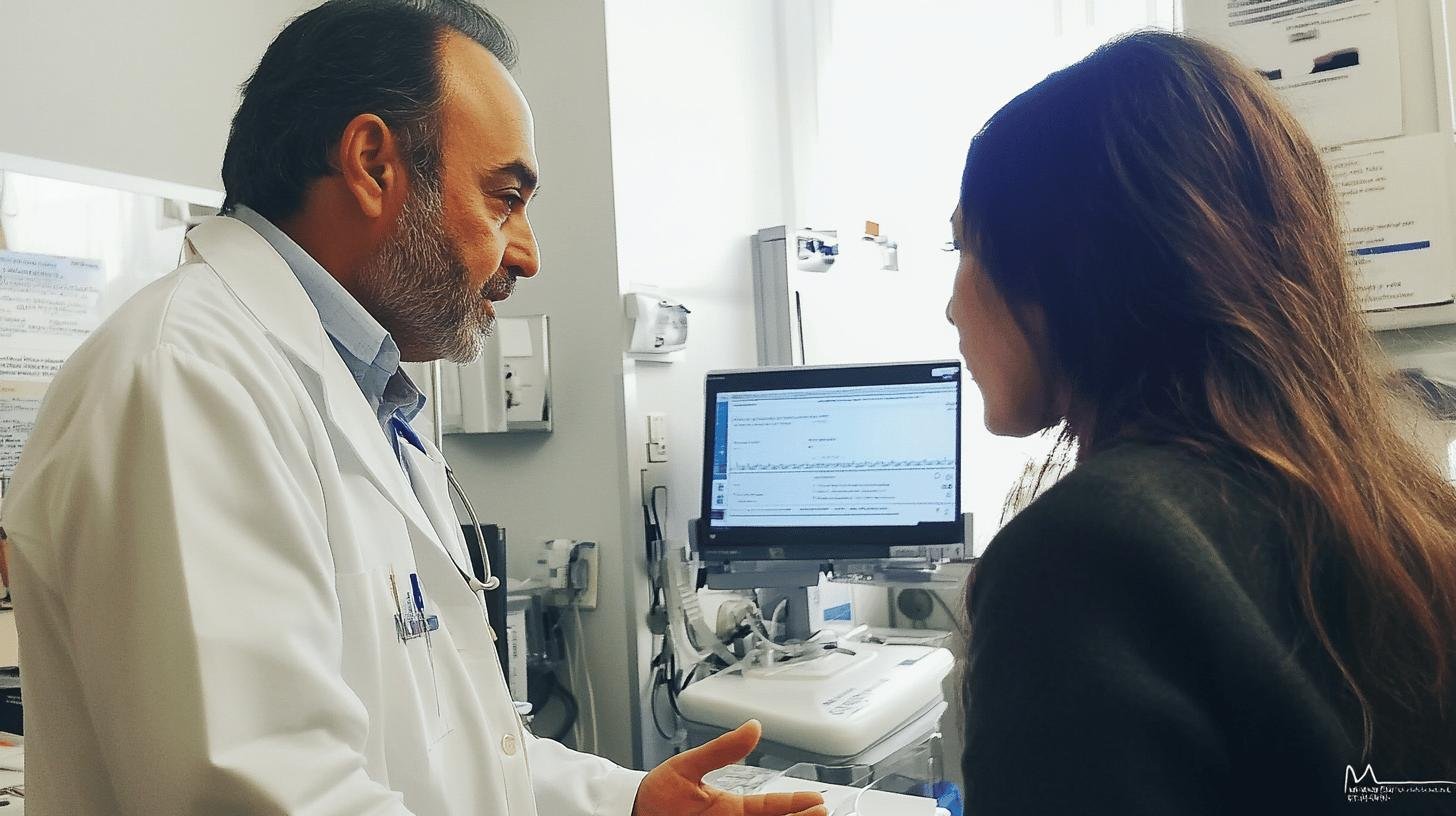TL;DR:
- Autoimmune diseases are not contagious; they result from the immune system attacking healthy cells.
- Causes include genetics, environmental factors, and hormonal changes.
- Common autoimmune diseases:
- Rheumatoid Arthritis (joint pain)
- Lupus (skin rashes, organ damage)
- Type 1 Diabetes (insulin production issues)
- Multiple Sclerosis (muscle weakness)
- Scleroderma (skin tightening)
- Managing autoimmune diseases involves medication and lifestyle changes.
- Management tips: stay active, eat a balanced diet, ensure adequate rest, manage stress, and track symptoms.
- Direct primary care (DPC) offers personalized support for ongoing care.
Ever wondered, ‘Are autoimmune diseases contagious?’ It’s a common myth we’ve all heard, but spoiler alert—they’re not! Autoimmune diseases, like rheumatoid arthritis or lupus, result from your immune system going haywire, not from catching a bug from your buddy. In this blog, we’re revealing why these conditions are not contagious and debunking some tall tales floating around. Ready to set the record straight? Let’s bust those myths and learn how your body and immune system play a role in these conditions!
Are Autoimmune Diseases Contagious? Busting Myths
You might ask, “Are autoimmune diseases contagious?” The short answer is no, they’re not. Autoimmune diseases can’t be transferred from one person to another. They occur when the immune system mistakenly attacks the body itself, unlike contagious illnesses spread by bacteria or viruses.
Why do some people think autoimmune diseases are contagious? Many people see symptoms like skin rashes or joint pain and assume they are infectious, similar to the common cold. This comes from noticing visible symptoms without understanding the internal immune conflicts. Autoimmune diseases aren’t about germs; they arise from the immune system attacking healthy cells.
Health experts, including top medical organizations, emphasize that autoimmune conditions require ongoing care—not isolation. They’re chronic and need sustained management. It’s a long-term commitment, similar to running a marathon rather than a sprint. So, if someone worries about catching lupus or Type 1 diabetes, reassure them it’s not contagious.

Causes and Development of Autoimmune Diseases
Autoimmune diseases remain a mystery. We don’t know the exact cause, but they occur when the immune system attacks the body’s own cells. It’s not like catching an infection; it’s an internal issue that confuses the immune system.
Genetics play a significant role—like inheriting something you never asked for. If family members have autoimmune diseases, your risk is higher. Environmental factors, such as chemical exposure or infections, can trigger these diseases, too. Hormones also influence them, especially in women.
Certain factors, such as stress, infections, or certain medications, may provoke this immune malfunction. These act like the final straw for the immune system, leading to an autoimmune response.
| Factor | Description |
|————–|—————————————————————————–|
| Genetic | Family history increases the risk of developing autoimmune diseases. |
| Environmental| Exposure to certain chemicals or past infections can trigger the immune system.|
| Hormonal | Hormonal changes, especially in women, can influence disease onset. |
Examples of Autoimmune Diseases

Autoimmune diseases involve the immune system attacking the body’s cells. Common ones include rheumatoid arthritis, lupus, Type 1 diabetes, and multiple sclerosis. They affect various systems and cause diverse symptoms.
- Rheumatoid Arthritis: Causes joint pain and swelling, primarily in hands and feet.
- Lupus: Causes skin rashes and joint pain and can damage organs like the kidneys.
- Type 1 Diabetes: Affects insulin production in the pancreas.
- Multiple Sclerosis: Affects the nervous system, leading to muscle weakness.
- Scleroderma: Thickens and tightens skin; may affect organs.
These diseases illustrate how the immune system can misfire, impacting skin and internal organs.
Managing Autoimmune Diseases with Direct Primary Care
Managing autoimmune diseases involves balancing medications and lifestyle changes. Medications reduce inflammation or suppress the immune system. Lifestyle tweaks, like diet and exercise, ease symptoms and improve life quality.
Direct primary care (DPC) offers personalized care without the hassle of insurance. It provides tailored treatment plans for patients with autoimmune diseases. DPC focuses on you and your health journey, taking a proactive approach to managing your condition.
Here are some tips for managing autoimmune symptoms:
- Stay Active: Gentle exercise boosts mood and reduces fatigue.
- Eat Well: A balanced diet can reduce inflammation.
- Rest Up: Sleep is crucial for healing.
- Stress Less: Use techniques like meditation to reduce stress.
- Track Symptoms: Keeping a diary may help identify patterns and triggers.
DPC is about ongoing support and fostering a strong relationship with your provider. This continuous care adapts to your needs, ensuring you’re more than just a number in the system. With DPC, you receive care that respects your unique story.
Final Words
So, we jumped feet first into understanding autoimmune diseases and tackled some big questions. We learned they’re not contagious, squashing myths that say otherwise. Plus, we explored what causes these mysterious diseases. Genetics, environment, and hormones all play a part.
Living with autoimmune issues can be tough, but there’s light at the end of the tunnel, especially with direct primary care. Personalized treatment offers a clear path to better health and easier management. Keep asking questions and seeking answers—because knowledge is power, right?
FAQ
Can autoimmune disease be transmitted sexually?
Autoimmune diseases cannot be transmitted sexually. They result from an immune system malfunction and aren’t linked to infections like STDs.
Can autoimmune disease be cured?
Autoimmune diseases cannot be completely cured, but symptoms can be managed. Treatment focuses on reducing the immune system’s activity and managing symptoms.
How to prevent autoimmune disease?
Preventing autoimmune diseases is not fully understood, but maintaining a healthy lifestyle may help reduce risk. Avoid environmental triggers, eat balanced meals, and manage stress.
Can autoimmune disease kill you?
Autoimmune diseases can lead to severe complications but aren’t usually fatal. With proper management, most individuals lead a normal life.
How long do people live with autoimmune disease?
People with autoimmune diseases can live long, healthy lives. Effective treatment and lifestyle adjustments play a key role in longevity.
Do people with autoimmune diseases get sick often?
Autoimmune diseases can increase susceptibility to infections due to weakened immunity. Careful management can lower this risk and improve overall health.
What happens when you are diagnosed with an autoimmune disease?
A diagnosis often leads to a treatment plan that includes medication and lifestyle changes. Close monitoring and regular doctor visits are crucial.

